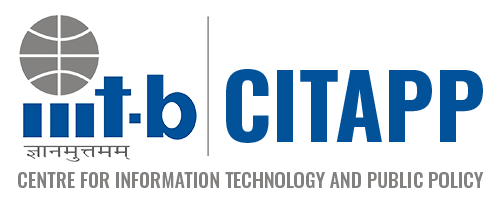Date: 17-11-2021
About the November 17th talk: The past few years has noted significant research efforts in the field of machine learning/artificial intelligence, for understanding gender issues. Few examples include using social media data or Google Trends data to examine gender-related sentiments, and using information from Wikipedia to track social norms. The importance of such analyses with publicly available big data sources has been further emphasized during the pandemic, when social distancing rules have made traditional survey data collection challenging. This talk will provide a background on the current landscape of machine learning/artificial intelligence related work in the field of gender studies. The talk will also present findings from three briefs that aimed to gather rapid insights on gendered aspects of the pandemic, using publicly available big data sources (authors affiliated to the Center on Gender Equity and Health, University of California San Diego). The briefs examined gender issues using Twitter data and machine learning analytics. Specific topics assessed in these publications include online misogyny on Twitter, gender differences in Twitter activity of heads of states, and Twitter activity by feminist activists during the pandemic.
Speaker Bio: Nabamallika Dehingia is a pre-doctoral fellow at the Center for Gender Equity and Health, UC San Diego, and holds a post-graduate diploma in rural management. Her research interests include intersectionality of gender and women’s health, particularly maternal and reproductive health. She has worked as a research manager for a monitoring and evaluation firm in India. She was involved in evaluation and assessment studies for programs funded by the Bill and Melinda Gates Foundation, Norway India Partnership Initiative and the Government of India. As a research manager, she was responsible for designing evaluation and research studies, collecting and analyzing data, and developing presentations and manuscripts from the findings of the studies. Her current research studies include exploring the relationship between microcredit programs and maternal reproductive health of women in India. Nabamallika is also interested in using advanced statistical techniques to answer critical questions related to public health; she is currently involved in a study that uses machine learning algorithms to identify predictors of sexual violence.
Nabamallika’s talk will be followed by a discussion and Q&A session anchored by Janaki Srinivasan
CITAPP’s Monthly Seminar Series is an attempt to create a forum where researchers across IIITB domains can meet and discuss cutting edge research on the chosen theme of the semester. The Series hopes to explore a technology or topic for its ramifications in different realms of social activity. In particular, we are interested in understanding the specific kinds of complexity that these domains present for technological innovation and design.
